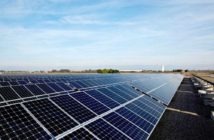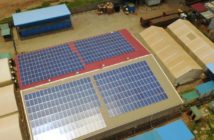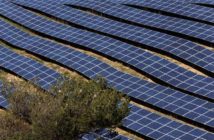MUFARO GUNDUZA
Instead of cursing darkness, light the candle!
It is an incontrovertible truth that the world, especially Zimbabwe with the current power cuts, requires a complete revolution in terms of its energy sources.
Conventional power sources such as coal, natural gas and oil have left a horrible litany and trail of destruction on the environment.
It does not require a rocket scientist to perceive that despite the energy challenges Africa is going through, there are big opportunities which African governments can effectively tap into and solar energy is one such creative and sustainable energy opportunity. In Africa, Morocco has demonstrated that clean energy sources are within the reach of African governments’ capacity.Simply defined in pedestrian language, solar energy entails using the energy from sunlight to provide electricity, to heat water, and to heat or cool homes, businesses or industry. Sunlight is a clean, renewable source of energy. It is a sustainable resource, meaning it does not run out, thus the supply can be maintained. Coal or gas is not sustainable or renewable: once they are gone, there is none left. More and more discerning consumers and energy activists are advocating for the use of clean, renewable energy such as solar, wind, geothermal steam, hydro-electricity and others. These renewable sources are sometimes called “Green Power”.There are several reasons why the use of solar energy is attractive. Firstly, solar energy generation does not require fossil fuels, hence it is less dependent on this limited and expensive natural resource. Although there is variability in the amount and timing of sunlight over the day, season and year, a properly configured system is highly reliable for the provision of long-term, fixed price electricity supply. So this non-dependence on fossil fuels becomes solar energy’s immediate strength.Secondly, solar energy is environment-friendly. Solar energy is clean, renewable (unlike gas, oil and coal) and sustainable, thus it helps to protect our environment.A solar energy system, more so, can be very convenient and can operate entirely independent, not requiring a connection to a power or gas grid at all. Systems can, therefore, be installed in remote locations (like holiday log cabins), making it more practical and cost-effective than the supply of utility electricity to a new site.Thirdly, solar energy systems are virtually maintenance-free and will last for decades. Once installed, there are no recurring costs.They operate silently, have no moving parts, do not release offensive smells and do not require you to add any fuel.In Africa, Morocco has boldly embraced this type of energy successfully and there are obviously valuable lessons for Zimbabwe and the entire Southern African region.Unlike other Arab states, Morocco is not endowed with oil or gas riches. Instead of seeing this as an impediment, it opened its eyes towards its geographical giftedness which enables it to harvest vast seas of free light for solar energy. The Moroccan government consciously decided to electrify the entire nation decades ago.By June 2002 after holding creative and robust stakeholder engagements both nationally and internationally, it embarked on serious public-private partnerships (PPPs) fashioned along enlightened mutual self-interest lines.With a fledging population of 32 million people one can imagine how daunting the burden on energy requirements could be. Today Morocco exports electricity to Europe thanks to the Desertech Initiative which is fast paying off.In the past Africa has tended to be a laggard on many fronts. For a continent which did not fully harvest the fruits of both the agricultural and industrial revolution and the subsequent computer age, the outset of the solar millennium needs governments that are prepared to take it head-on instead of adopting a “wait-and-see” attitude. The Moroccan case study is apparently a first on the continent. It is a successful initiative which can be replicated elsewhere in Africa in terms of funding model, operational logistics, technological best practices and energy provisioning models. Zimbabwe, among others, can also do comprehensive feasibility studies within their locality to determine suitable solar farms or partner with neighbouring countries where the geographical terrain is ideal, thus pooling resources together for mutual interest and benefit. Such initiatives could even further trigger regional integration and co-operation. Instead of bemoaning the darkness that befalls us every day, we should just light the candle..Mufaro Gunduza is the head of Mount Carmel Insitute. He writes in his personal capacity.






